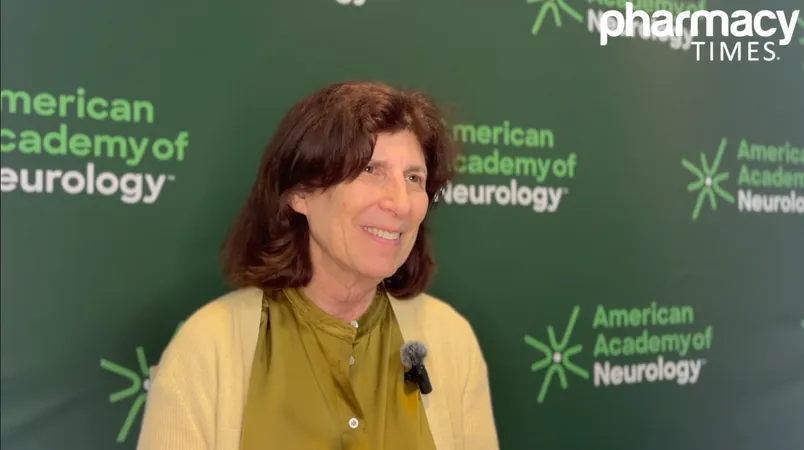
Navigating Pediatric Multiple Sclerosis: Expert Insights from AAN 2025
2025-04-19
Author: Wei
Unlocking the Challenges of Pediatric MS Management
At the recent American Academy of Neurology (AAN) 2025 Annual Meeting in San Diego, Dr. Lauren B. Krupp, a leading expert in pediatric multiple sclerosis (MS), shared vital insights on managing this complex condition. As the director of the Multiple Sclerosis Comprehensive Care Center at NYU Langone Health, Dr. Krupp emphasized the urgency of early intervention and the use of high-efficacy therapies for children and adolescents.
Urgency in Treatment: Starting Strong with High-Efficacy Therapies
Dr. Krupp pointed out that timing is crucial when it comes to starting MS treatment. Ideally, therapy should commence as soon as a diagnosis is confirmed. While many adult medications are sometimes used off-label for younger patients, they have shown promise in effectiveness and safety. Notably, the biological characteristics of pediatric MS frequently mirror those of adult MS, allowing physicians to navigate treatment decisions with greater confidence.
Monitoring Matters: A Comprehensive Approach
Effective management of pediatric MS does not end with prescription. Continuous monitoring is essential and includes regular blood tests, MRIs, and clinical assessments to evaluate treatment efficacy. Dr. Krupp recommends conducting MRI scans six months after initiating therapy to gauge progress, with follow-up scans typically scheduled annually thereafter. This rigorous monitoring ensures that each patient receives tailored care that adapts as their condition evolves.
Empowering Families and Patients: The Role of Pharmacists
Pharmacists play a pivotal role in the care team, offering critical support and education to both patients and their families. Dr. Krupp noted that modern MS treatments have greatly improved, making adherence easier for young patients—many therapies now require less frequent administration compared to past protocols, which often involved multiple weekly injections. Pharmacists can help reassure families, address potential side effects, and enhance understanding of the prescribed therapies, substantially benefiting overall treatment experience.
Holistic Support: Addressing Emotional and Psychosocial Needs
Beyond physical health, Dr. Krupp stressed the importance of a holistic approach that encompasses the emotional and psychosocial needs of both the patient and their family. By creating a supportive network around young individuals with MS, care teams can help alleviate some of the emotional burdens that accompany chronic illness, paving the way for a better quality of life.
Conclusion: A Collaborative Effort for Better Outcomes
The key takeaways from the AAN 2025 discussions on pediatric MS underline the importance of swift action, ongoing monitoring, and holistic support. Engaging every facet of a child's life—from treatment regimes to emotional health—will pave the path for improved outcomes in pediatric MS management. As medical science advances, the hope is that more targeted therapies will become available, offering even better support for young patients and their families.


 Brasil (PT)
Brasil (PT)
 Canada (EN)
Canada (EN)
 Chile (ES)
Chile (ES)
 Česko (CS)
Česko (CS)
 대한민국 (KO)
대한민국 (KO)
 España (ES)
España (ES)
 France (FR)
France (FR)
 Hong Kong (EN)
Hong Kong (EN)
 Italia (IT)
Italia (IT)
 日本 (JA)
日本 (JA)
 Magyarország (HU)
Magyarország (HU)
 Norge (NO)
Norge (NO)
 Polska (PL)
Polska (PL)
 Schweiz (DE)
Schweiz (DE)
 Singapore (EN)
Singapore (EN)
 Sverige (SV)
Sverige (SV)
 Suomi (FI)
Suomi (FI)
 Türkiye (TR)
Türkiye (TR)
 الإمارات العربية المتحدة (AR)
الإمارات العربية المتحدة (AR)